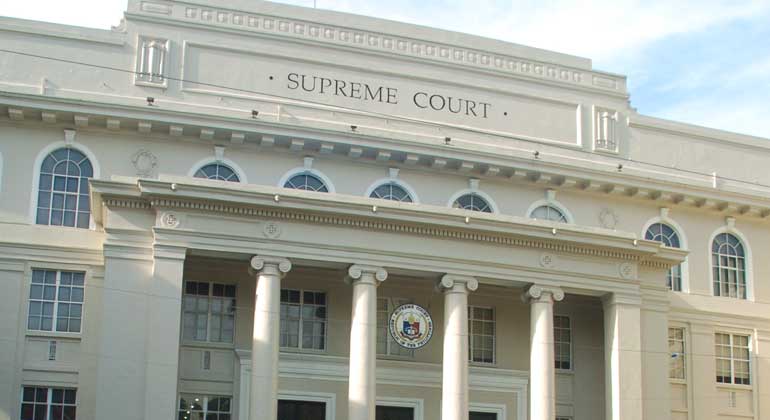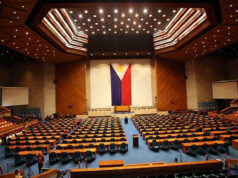
By John Victor D. Ordoñez, Reporter
A SUPREME COURT (SC) ruling prohibiting water concession holders from recovering their corporate income tax by passing on the cost to customers closes the door on practices introduced in the early days of public-private partnerships (PPPs), analysts said.
“The Supreme Court was correct to reverse one of the most glaring excesses of early public-private partnerships projects, in which the government negotiated away the public interest to secure actual, unjust gains for its private partners,” Terry L. Ridon, convenor of public policy think tank Infrawatch PH, said in a Facebook Messenger chat.
In a Dec. 7, 2021 decision received by former Bayan Muna legislators on May 17, the High Court declared Maynilad Water Services, Inc. and Manila Water Co., Inc. to be public utilities providing basic services, barring them from recovering their income tax as operating expenses.
Under Republic Act No. 6234 or the law establishing the Metropolitan Waterworks and Sewerage System (MWSS), the water concessionaires and the MWSS are allowed a rate of net return not exceeding 12% of the rate base of its assets in operation.
Former Bayan Representatives Neri J. Colmenares and Carlos Isagani T. Zarate, who filed the petition in 2015, sought to void the arbitration clause in the 1997 concession agreements between the water companies and the MWSS.
The provision the plaintiffs challenged allowed Maynilad and Manila Water to recover their income taxes by classifying them as operating expenses.
Under the concession agreements, the water companies were required to pay MWSS “concession fees” in exchange for the exclusive right to operate waterworks and sewerage operations in the east and west service areas of Metro Manila.
Through the provision in the agreements, the water companies were allowed to bill water consumers above “standard rates,” which would also be subject to the 12% rate limit.
Citing 2002 SC jurisprudence, the court said public utilities are prohibited from including these income taxes in rates chargeable to consumers.
“Though it did not grant a refund, ruling that Maynilad and Manila Water cannot pass on the 12% corporate income tax to the consumer will benefit the people since it should result in lower water rates,” Ephraim B. Cortez, president of the National Union of Peoples’ Lawyers, said in a Viber message.
“There is no question that, though they are private entities, they are subject to the stricter requirements of the Public Service Act.”
Under the Public Service Act, companies classified as public utilities are regulated and supervised by administrative agencies, which in the case of the water concessionaires is the MWSS.
The MWSS is authorized by law to periodically fix water rates and sewerage services fees at levels deemed to be fair and equitable.
Jennifer C. Rufo, Maynilad’s head of corporate communications, told BusinessWorld on Sunday that the revised concession agreement between the water distributors prohibited water companies from passing on their corporate income tax to consumers.
Maynilad and Manila Water announced in separate disclosures on May 11 that the amended agreements were signed on May 10, to retroactively take effect on July 1, 2022.
“The payment of corporate income taxes should never be subject to private sector cost recovery under any circumstance, as it subjects the public to additional burdens while expanding private partner gains for essentially the same service,” Mr. Ridon said.



